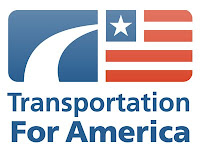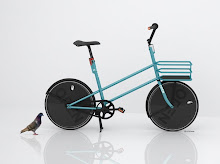
The team of Koucky & Partners, LOTS Design and Green Idea Factory has developed an innovative bike share concept, called OPENbike, for the city of Copenhagen. They have been awarded a shared first prize amongst 127 international entries in the design competition. The awards ceremony was held on 10 December, during the COP15 summit.
The City of Copenhagen, Denmark, one of the world leading cycling cities, aims at establishing a new bike share system and initiated an open international design competition earlier this Fall.
OPENbike is user-focused and proposes a system that is easy to use, flexible and fully scalable. The design goal has been to create a system that seamlessly integrates with public transport and becomes a natural part of Copenhagen’s existing bicycle culture. The system proposes a smart card system and positioning solutions integrated in each bicycle to create a fully floating bike share system.OPENbike does therefore not need special stands and bicycles can easily be repositioned to adapt the system to the city's changing needs.
"We are particularly happy the jury appreciated our intentions with this iconic bicycle design that relates to Copenhagen bicycle history and, at the same time, contributes to the new branding of Copenhagen," says Erik Nohlin, a specialist in bicycle design from LOTS Design in Gothenburg, Sweden.
Michael Koucky of Koucky & Partners, also in Gothenburg, adds, "We aimed to make this bike feel like an owned bike for a Copenhager or a commuter to the Danish capital. The bike is not meant to be on a pedestal, both literally and figuratively. It should be a natural part of the lives of local cyclists, and a great example for tourists."
"It is clear to me that leading cities are ready to embrace what is now the 4th Generation in bike sharing systems," says Los Angeles-born Todd Edelman of Green Idea Factory, currently based in Berlin. "The attention and generosity shown by the City of Copenhagen in holding this competition hopefully indicates that cities are also starting to take a leadership role in implementing this important component of a seamless public transportation solution."
See OPENbike and click here for detailed information on the Design Competition and all the other entries.
High resolution images for publication or viewing can be downloaded here.










